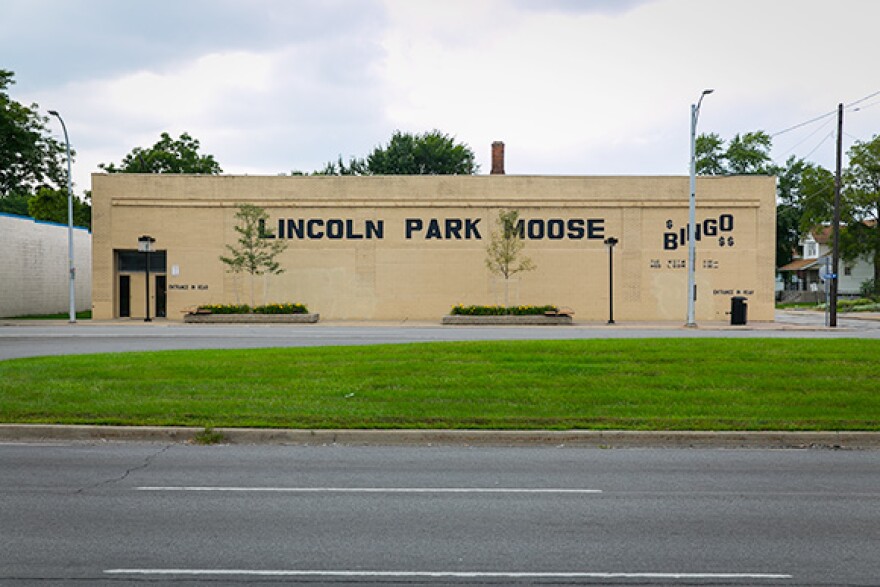Q: What do Detroit, Allen Park, Flint, and Hamtramck all have in common?
A: The cities are all under the control of a state-appointed emergency manager.
Last month, the city of Lincoln Park joined that list. But we didn't see the protests and outcry that we saw over the appointment of an emergency manager in Detroit.
When the city of Lincoln Park was turned over to Brad Coulter, a consultant to corporate turnaround specialists O'Keefe & Associates, the mayor of Lincoln Park, Thomas Karnes, was positive.
More from Michigan Radio's Sarah Cwiek:
“He has a good idea of the city, of what’s going on here, and he should have a good idea of all of our finances,” Karnes said of Coulter. “So I think he’s going to hit the ground running.”
It seems officials in Lincoln Park are welcoming the idea of an outsider coming in and helping them right their financial wrongs.
Kim North Shine of Metromode writes that one local official in Lincoln Park likened Coulter to their own "Allan Mulally," Ford Motor Company's former CEO who steered the company back to profitability.

Coulter shared his thoughts with Metromode about where Lincoln Park is headed:
Q: What did you know about Lincoln Park before you went to work there?
I spent 30 days this past February and March doing a complete financial review of the city for the Michigan Treasury. I had a pretty good idea of what the problems were there before being named the emergency manager.
Q: What are your impressions of the city? Good, bad, otherwise?
The city still has good, affordable housing stock and is close to downtown Detroit as well as the airport, Monroe, and Toledo. Plus, residents have a real pride about being from Lincoln Park, people care – and that's important.
Q: Do you feel prepared professionally to turn Lincoln Park into a place that people want to come to, whether to live, start a business, shop, etc?
Yes, a lot of what needs to be done is just common sense and getting people to focus on a goal. People want to live in a safe community. We need to actively promote the positive aspects of Lincoln Park in order to get the attention of potential residents or businesses.
Q: It sounds like your work in Lincoln Park is not just about righting the books but raising property values and revitalization.
Long term, the majority of the city's revenue comes from property taxes. If property values keep going down, so will revenue. It's imperative that we stabilize and grow property values. That means keeping the community safe, controlling graffiti, and maintaining parks, among other things.
Q: Tell me about your offer to commercial brokers to help them push through roadblocks so they can invest in the city? This has DDA types in your city excited. Could you tell me more?
We have plenty of vacant retail on very busy thoroughfares such as Fort or Dix. I am available to help the DDA in any way I can to promote the city and get businesses to occupy buildings.
Q: Fort Street, Lincoln Park's downtown, what's your vision for it, if you have one?
We need to try and make it more walkable plus get a core group of businesses that can be a draw for people. I'd like to see us limit the number of pawnshops, for example, as these do not add to the downtown environment.
Also, the north end of Fort has a number of Mexican restaurants and stores. We can promote these as a draw for the city. People will drive for good Mexican food.
Q: How long do you expect to be there and what do you hope to leave behind when you're gone?
The term is 18 months, although my goal is to finish before that time.
Q: In many communities, where emergency financial managers have been assigned, there has often been a certain amount of suspicion and even hostility. How can you, as Lincoln Park's emergency manager, change that dynamic? How do you convince the community that you, as an outsider, have their best interests at heart?
I like to manage by wandering around. I talk to people at all levels of the city organization, I interact with residents and business owners, and I spend time getting to know what people's priorities are. They may not like some of the solutions to the financial crisis, but they can't say I didn't take their point of view into consideration.
Q: What lessons – good and bad – have you learned from watching the experiences of other emergency managers?
Make sure to allow the elected officials and city staff to function and have input. No one responds to a dictator.
Q: Cities are complicated organizations that require the input, expertise, and checks and balances of many people – elected and professional. How do you as an E.M. gauge your own ability to tackle a problem?
I specialize in dropping into complex, chaotic and financially troubled situations. You have to decide on the priorities and focus on those first, plus hopefully motivate people to pick up the ball and help solve the problems.
Q: When looking over Lincoln Park's situation, what idea or approach or policy do you feel was missing in its desire for revitalization?
With the budget and staff cutbacks, the city has lost ground on enforcing housing codes and rental permits. We can't let the city deteriorate and must get tougher on abandoned buildings and nuisance properties.
Q: Do you have a favorite restaurant or hangout in Lincoln Park?
I really like the food at Sabor Criollo on Fort Street.








